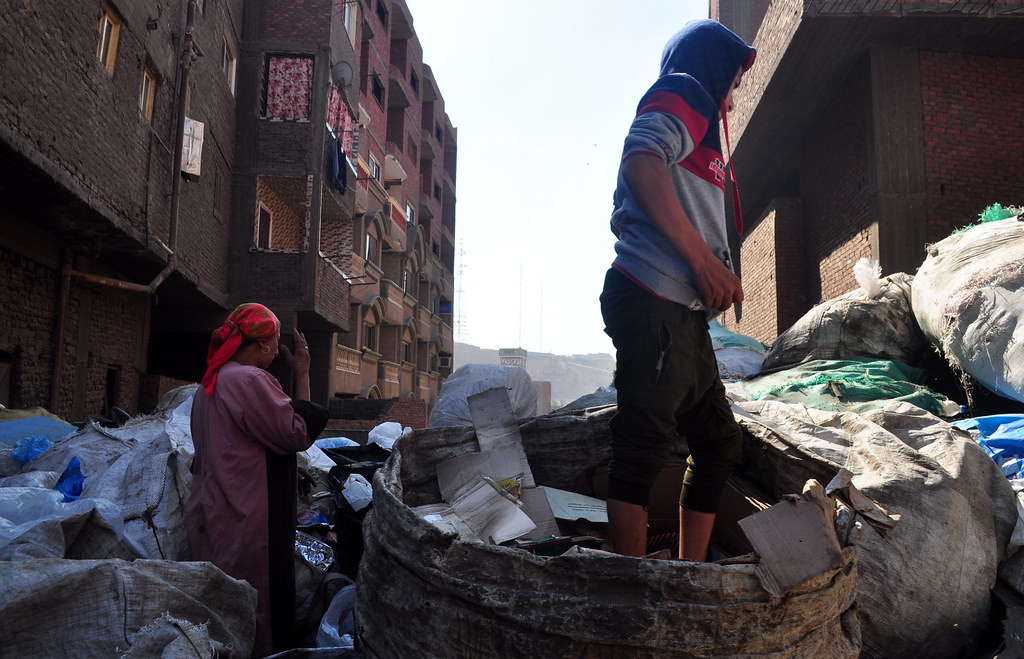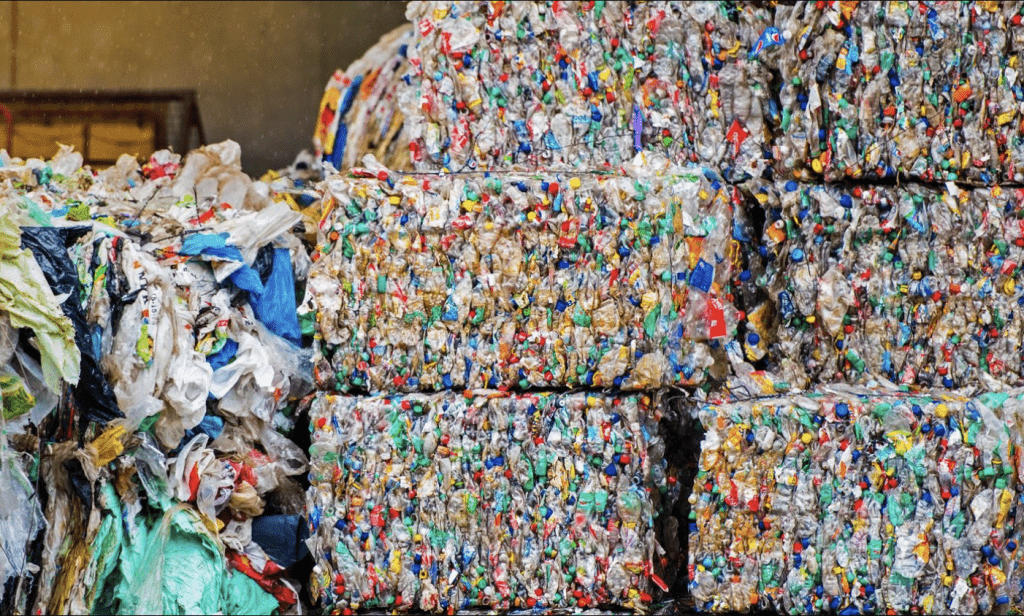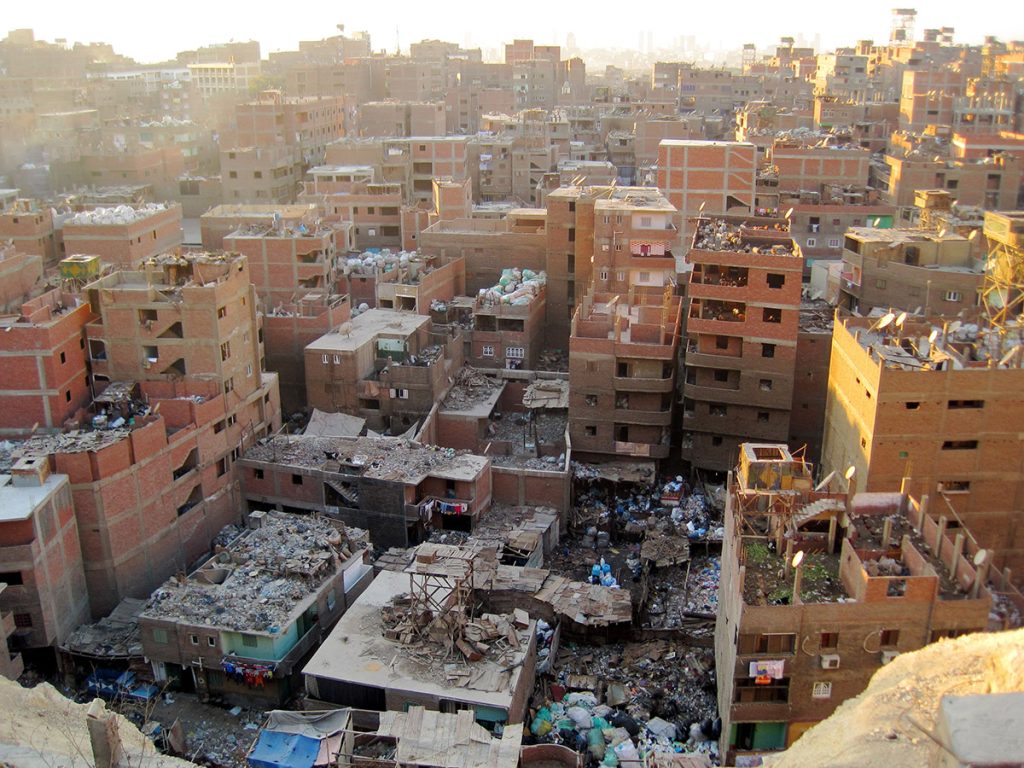Nestled up against the cliffs of Cairo’s Mokkatom, is a neighborhood called Manshiyat Naser whose local economy revolves almost entirely around the recycling of Cairo’s trash. Home to over a quarter of a million people, the neighborhood plays a vital part in keeping Cairo running and clean, but the important role this community plays is often gone unnoticed by the city at large.
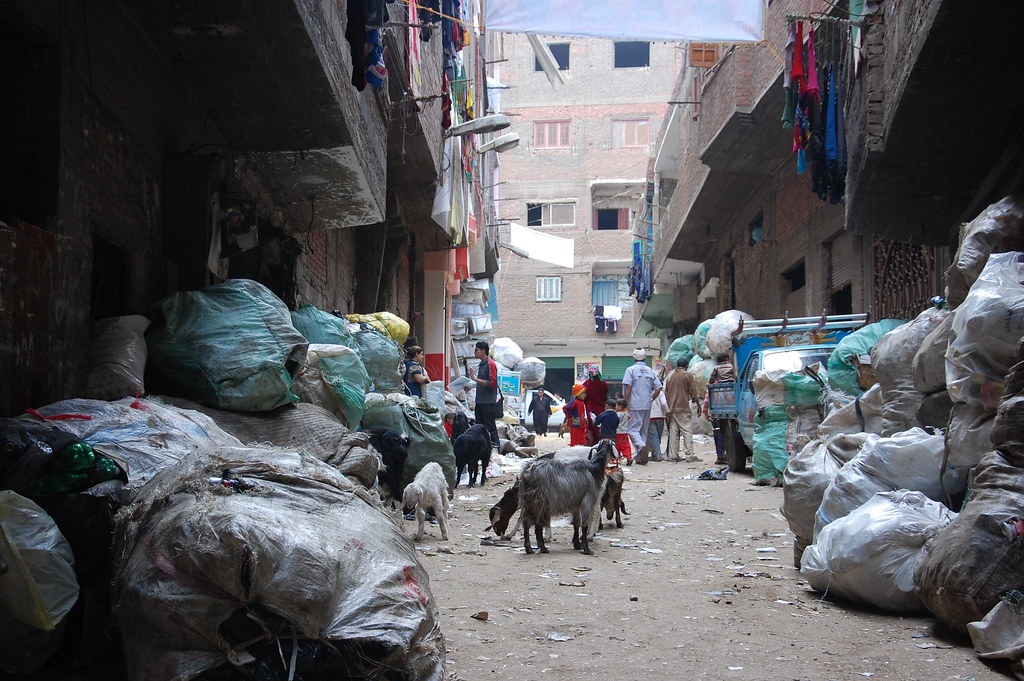
The streets leading into the neighborhood heave with trucks filled up with rubbish to great heights that soon disappear into a labyrinth of streets. Almost every street seems to be entirely lined with piles of rubbish collected from the wider city sprawling into every available space. But appearances can be deceiving, as this is not a trash dump where rubbish is simply left, all this trash is neatly piled into stacks of rubbish divided into plastics, metals, clothes, and other materials ready to be recycled.

Some have given the neighborhood the unglamorous title of Garbage City and the people who work there have been named the Zabbaleen, which translates unfairly into garbage people. But as one local resident and trash collector told me a few years ago, “they call us this, but we’re not the ones throwing trash on the street, we’re the people who keep this city clean.” Eager to instill in me a sense of their importance, he described how for over 70 years this community and others like it have been the only thing stopping Cairo from overrunning with trash.
Residents of Manshiyat Nasr collect people’s trash from all over Cairo, often for a small fee per household, and transfer it all by truckload back to the area, amounting to an incredible 7000 tons a day. In the neighborhood is where the colossal task of sorting and sometimes recycling the rubbish happens. The result of all this work, however, is that 90% of central Cairo’s rubbish is recycled. This unheard-of rate of recycling is up to four times that of some European cities.
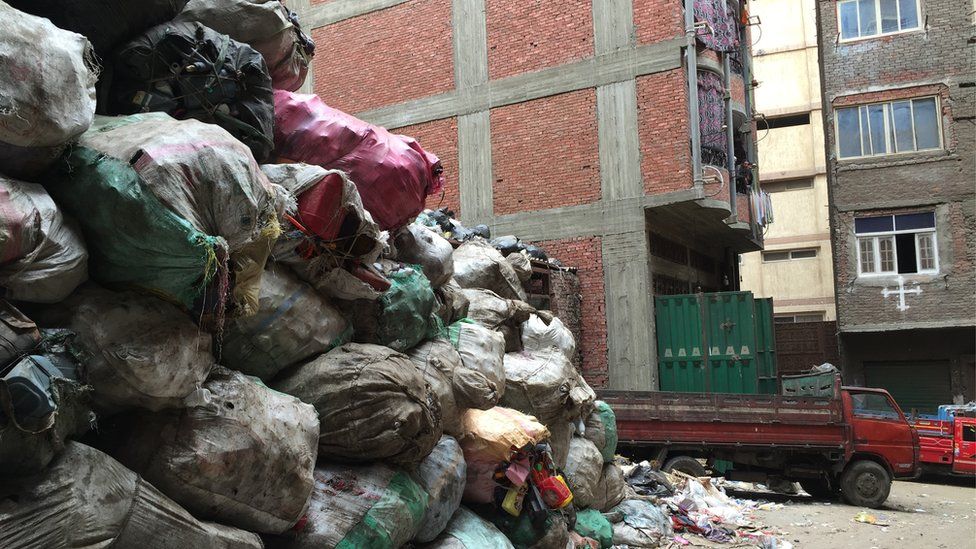
While much of the rubbish is ground down to be reused as new bottles of Coca-Cola and plastic bags in large factories outside of the area, some local initiatives have started making their own products to sell. There are groups of women that collect pieces of fabric and turn them into bags and rags by weaving them together. Another local initiative even collects waste paper to make notebooks and calendars to be sold throughout the country.
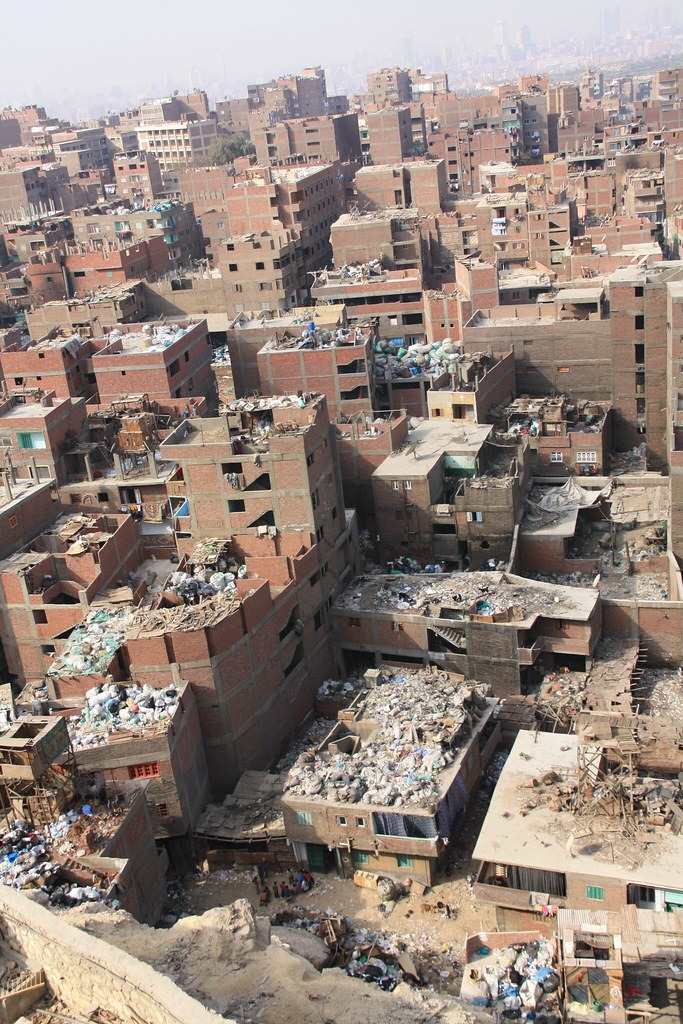
Working conditions, however, are harsh and the sacrifices made by people in Manshiyat Naser often go unnoticed. As with many professions, it is often the most ridiculed and low-paid that are the most important to society. Some NGOs argue that Manshiyat Naser and other neighborhoods like it around Cairo deserve our respect, but also our support in any small way we can. The same NGOs have pushed for residents of Cairo to try to separate their trash into the glass, plastics, metals, paper, and food waste to help make the work of people at places like Manshiyat Naser a little easier and more sanitary.
